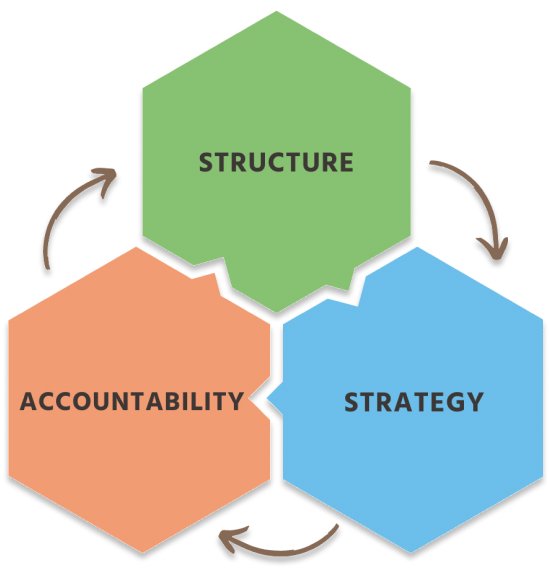GEL's Research-Based Methodology

The GEL Approach
Academic coaching for students with ADHD has been shown to improve time management and study skills, reduce anxiety, increase student GPA, and influence other variables important for academic success, including improved self-esteem and satisfaction with school [1,2,3].
The GEL Approach is the research methodology utilized by our coaches to help students maximize their potential in school through sustainable behavior change around meeting deadlines.
Our approach is unique in combining clinical research from multiple domains, including psychotherapy, neuropsychology, peak performance science, and educational psychology. Our foundation in evidence-based interventions combined with a delivery deeply rooted in compassion, empathy, and understanding is why our students regularly experience exceptional results.
The Primary Pillars Which Comprise The GEL Approach include:



Nothing about The GEL Approach is dependent on motivation or willpower for students to succeed.

While creating an effective structure around doing schoolwork is an excellent strategy for conquering procrastination and increasing task initiation, the structure is simply not enough for students with ADHD to consistently meet deadlines. Students with ADHD need strategies that assist with time management, breaking down complex projects into easy-to-manage steps, minimizing distractions, keeping track of deadlines, developing effective study skills, creating routines and strategies, and much more. GEL coaches demystify what it looks like to succeed academically and provide students with concrete tools and strategies that deliver predictable and reliable results [7,8,9].
Perhaps one of the most powerful features of The GEL Approach is the way our coaching process leverages student-centered accountability. Clinical research has clearly shown accountability as an effective intervention for behavior adherence [1,10,11]. The GEL Approach is unique in that it employs two layers of accountability. In the first layer of accountability, students hold themselves accountable for following through on what they said they would do. The second layer of accountability is formed through the collaboration between the student and their coach. It is important to note that students are not held accountable to their coach.
Results
Because the GEL Approach is action-oriented, students regularly see positive results relatively quickly. And since our services generalize to other areas of living, students can apply the same mindset, tools, and strategies to not only manage academics but to also manage deadlines in every area of their lives.

We encourage you to look at our Case Studies and learn firsthand the experiences of some of our students.
References
- Prevatt, F., & Yelland, S. (2015). An Empirical Evaluation of ADHD Coaching in College Students. Journal of attention disorders, 19(8), 666–677.
- Swartz, S., Prevatt, F., & Proctor, B. E. (2005). A coaching intervention for college students with attention deficit/hyperactivity disorder. Psychology in the Schools, 42, 647-655.
- Parker, D. R., & Boutelle, K. (2009). Executive function coaching for college students with learning disabilities and ADHD: A new approach for fostering self-determination. Learning Disabilities Research & Practice, 24, 204-215.
- DuPaul, G.J., Dahlstrom‐Hakki, I., Gormley, M.J., Fu, Q., Pinho, T.D., & Banerjee, M. (2017). College Students With ADHD and LD: Effects of Support Services on Academic Performance. Learning Disabilities Research & Practice, 32, 246–256.
- Niermann, H. C., & Scheres, A. (2014). The relation between procrastination and symptoms of attention-deficit hyperactivity disorder (ADHD) in undergraduate students. International journal of methods in psychiatric research, 23(4), 411–421.
- Parker, D. R., Hoffman, S. F., Sawilowsky, S., & Rolands, L. (2013). Self-control in postsecondary settings: Students’ perceptions of ADHD college coaching. Journal of Attention Disorders, 17(3), 215–232.
- Kreider, C. M., Medina, S., & Slamka, M. R. (2019). Strategies for Coping with Time-Related and Productivity Challenges of Young People with Learning Disabilities and Attention-Deficit/Hyperactivity Disorder. Children (Basel, Switzerland), 6(2), 28.
- Prevatt F. (2016). Coaching for College Students with ADHD. Current psychiatry reports, 18(12), 110.
- LaCount, P. A., Hartung, C. M., Shelton, C. R., & Stevens, A. E. (2018). Efficacy of an Organizational Skills Intervention for College Students With ADHD Symptomatology and Academic Difficulties. Journal of attention disorders, 22(4), 356–367.
- Prevatt, F., Lampropoulos, G. K., Bowles, V., & Garrett, L. (2011). The use of between session assignments in ADHD coaching with college students. Journal of attention disorders, 15(1), 18–27.
- Oussedik, E., Foy, C. G., Masicampo, E. J., Kammrath, L. K., Anderson, R. E., & Feldman, S. R. (2017). Accountability: a missing construct in models of adherence behavior and in clinical practice. Patient preference and adherence, 11, 1285–1294.


